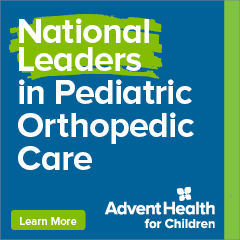Tips for Healthy, Happy Travel
Using discretion and common sense, I eat and drink whatever I like when I’m on the road. By following these basic guidelines, I never once suffered from Tehran Tummy or Delhi Belly.
Take precautions on the flight. Long flights are dehydrating. I ask for “two orange juices with no ice” every chance I get. Eat lightly, stay hydrated, skip coffee or alcohol, and limit sugar until the flight’s almost over. Avoid the slight chance of getting a blood clot in your leg during flights by taking short walks hourly. While seated, flex your ankles and don’t cross your legs. Some people are more prone to clots (factors include obesity, age, genetics, smoking, and use of oral contraceptives or hormone replacement therapy).
Eat nutritiously. The longer your trip, the more you can be affected by an inadequate diet. Budget travelers often eat more carbohydrates and less protein to stretch their vacation dollars. This is the root of many health problems. Protein helps you resist infection and rebuilds muscles. Get the most nutritional mileage from your protein by eating it with the day’s largest meal (in the presence of all those essential amino acids). Supplemental super-vitamins, taken regularly, help me to at least feel healthy.
Use good judgment when eating out. Avoid unhealthy-looking restaurants. Meat should be well-cooked (unless, of course, you’re eating sushi, carpaccio, etc.) and, in some places, avoided altogether. Have “well done” written on a piece of paper in the pertinent language and use it when ordering. Pre-prepared foods gather germs (a common cause of diarrhea). Be especially cautious outside of Europe. When in serious doubt, eat only thick-skinned fruit…peeled.
Keep clean. Wash your hands often, keep your nails clean, and avoid touching your eyes, nose, and mouth. Hand sanitizers can be helpful; however, since they target bacteria, not viruses, they should be used as an adjunct to, rather than a replacement for soap and warm water.
Exercise. Physically, travel is great living — healthy food, lots of activity, fresh air, and all those stairs! If you’re a couch potato, try to get in shape before your trip by taking long walks. People who regularly work out have plenty of options for keeping in shape while vacationing. Biking is a great way to burn some calories and get intimate with a destination. Though running is not as widespread in Europe as it is in the U.S., it’s not considered weird either. Runners can enjoy Europe from a special perspective, especially at dawn. Swimmers will find that Europe has plenty of good, inexpensive public pools. Most big-city private tennis and swim clubs welcome foreign guests for a small fee, which is a good way to make friends as well as stay fit.
Get enough sleep. Know how much sleep you need to stay healthy (generally 7–8 hours per night). If I go more than two nights with fewer than 6 hours’ sleep, I make it a priority to catch up — no matter how busy I am; otherwise, I’m guaranteed to get the sniffles.
Basic First Aid
Be proactive to stay well and pack these items.
Headaches & Aches: Tylenol (or other over-the-counter pain reliever) soothes headaches, sore feet, sprains, bruises, hangovers, and minor problems. If you’re buying it overseas, Europeans may be more familiar with the term “paracetamol” (pare-ah-SEET-ah-mall).
Swelling: Often accompanying a physical injury, swelling is painful and delays healing. Ice and elevate any sprain periodically for 48 hours. A package of frozen veggies works as a cheap ice pack. If your foot or leg is swollen, buy/borrow a bucket and soak the affected area in cold water, or sit on the edge of a cool swimming pool. Take an anti-inflammatory like ibuprofen (Advil, Motrin). Use an Ace bandage to immobilize, reduce swelling, and provide support. It is not helpful to “work out” a sprain — instead, cut back on activities that could aggravate the injury.
Fever: A high fever merits medical attention. A normal temperature of 98.6°F equals 37°C, so if your thermometer reads 40°C, you’re boiling at 104°F!
Colds: It’s tempting to go, go, go while on vacation — but if you push yourself to the point of getting sick, you’ve accomplished nothing. If you’re feeling run-down, check into a good hotel, sleep well, and force fluids. My trick during a hectic schedule is to suck on vitamin C with zinc tablets. Stock each place you stay with boxes of juice upon arrival. Sudafed (pseudoephedrine) and other cold capsules are usually available, but may not come in as many varieties.
Abrasions: Clean abrasions thoroughly with soap to prevent infection. Bandages help keep wounds clean but are not a substitute for cleaning. A piece of clean cloth can be sterilized by boiling for 10 minutes or by scorching with a match.
Blisters: Moleskin, bandages, tape, or two pairs of socks can prevent problems with your feet. Cover any irritated area before it blisters. Many walkers swear by Body Glide, a solid anti-chafing stick sold in sporting-goods stores, or Band-Aid’s Friction Block stick to prevent blisters where shoes rub against your foot.
Motion Sickness: To be effective, motion sickness meds (Dramamine or Marezine) should be taken 1-hour before you think you’ll need it. These drugs can also serve as a mild sleep aid. Bonine also treats motion sickness but causes less drowsiness.
Diarrhea: If you get the runs, take it in stride. To help avoid getting diarrhea, eat yogurt, which has enzymes that can ease your system into the country’s cuisine. Let the diarrhea run its course. Make your diet as bland and boring as possible for a day or so (bread, rice, boiled potatoes, clear soup, toast without butter, weak tea). If loose stools persist, drink lots of water to replenish lost liquids and minerals. Bananas are effective in replacing potassium. Don’t take antidiarrheal medications if you have blood in your stool or a fever greater than 101°F (38°C) — you need a doctor’s exam and antibiotics. A child (especially an infant) suffering from a prolonged case of diarrhea also needs prompt medical care.
Constipation: With all the bread you’ll be eating, constipation is as prevalent as diarrhea. Get exercise, eat roughage (raw fruits, leafy vegetables, prunes, or bran tablets).
Rick Steves (www.ricksteves.com) writes European travel guidebooks and hosts travel shows on public television and public radio. Email him at rick@ricksteves.com and follow his blog on Facebook.









